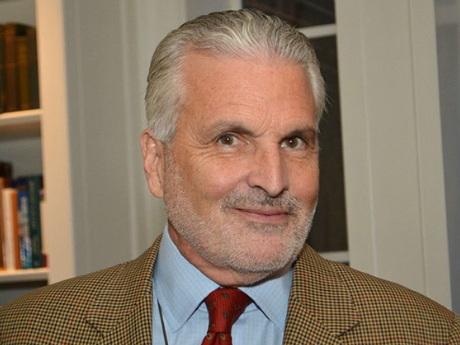Q & A: American Poetry
Q & A American Poetry: J.D. McClatchy

Are there essential ways in which you consider yourself an American poet?
The central strain of American poetry has continually been a Song of Myself- - the lyrical celebration of the individual. Solitude is the soul's setting; landscapes or cityscapes are backdrops to heighten the isolate self. From the Puritan divines on to our contemporary eccentrics like Ashbery and Ammons, we prefer to read accounts of the self picking its way through the cluttered emptiness. Whitman's lonely catalogues and Dickinson's hymns to unbelief are our breviary. History is neither weight nor witness. Nature is uncompanionable.
Do you believe there is anything specifically American about past and contemporary American poetry? Is there American poetry in the sense that there is said to be American painting or American film? Do you wish to distinguish American poetry from British or other English language poetry?
Of the English poets, it is Milton more than any other who has been a ghost in the American machine. But the single English text with the most decisive influence on our sensibility and style has been the King James Bible.
Which historic poets do you consider most responsible for generating distinctly American poetics?
Whitman created American poetics, and remains the model for any American poet: not how we write about ourselves but how we imagine ourselves. Pound had a widespread but shallow effect on the "look "of poems, and not lasting effect on their ambitions. Stevens and Frost are the poets I think of as the most distinctly "American" of this century. Neither is easily or convincingly imitable. Perhaps they are more crucial to readers than to writers.
What import does regional poetry occupy in your sense of American poetry?
Regionalism has been American poetry's strength, if only by allowing many poets to ignore one another. A single "national style" is a dead hand on the shoulder of any poet. Regional styles encourage concentration and innovation. Regionalism is not merely a matter of geography and temperament. Black or gay or feminist poetry is a region too, a state of imagination.
Are you interested in poetry written in America but not in English?
Am I interested in poetry written in America but not in English? Not in the slightest. The country I live in is a language.
Do other aspects of your life (for instance, gender, sexual preference, ethnicity) figure more prominently than nationality in your self-identity as a poet?
I am white, male, middle-aged, bourgeois, and gay. All of which are coincidental to my being American. I write out of the facts of my life- but much more, I write out of my dreams. From the start, America has been in the business of giving people dreams.
What do you see as the consequences of "political correctness" for American poetry?
"Political Correctness" is an enemy of the imagination. The whole point of poetry is to free the self from constraint. Poets with manifest or covert political agendas have small chance of abiding or of aiding their cause. They belong to the history of sociology not of literature.
Published 1999.


